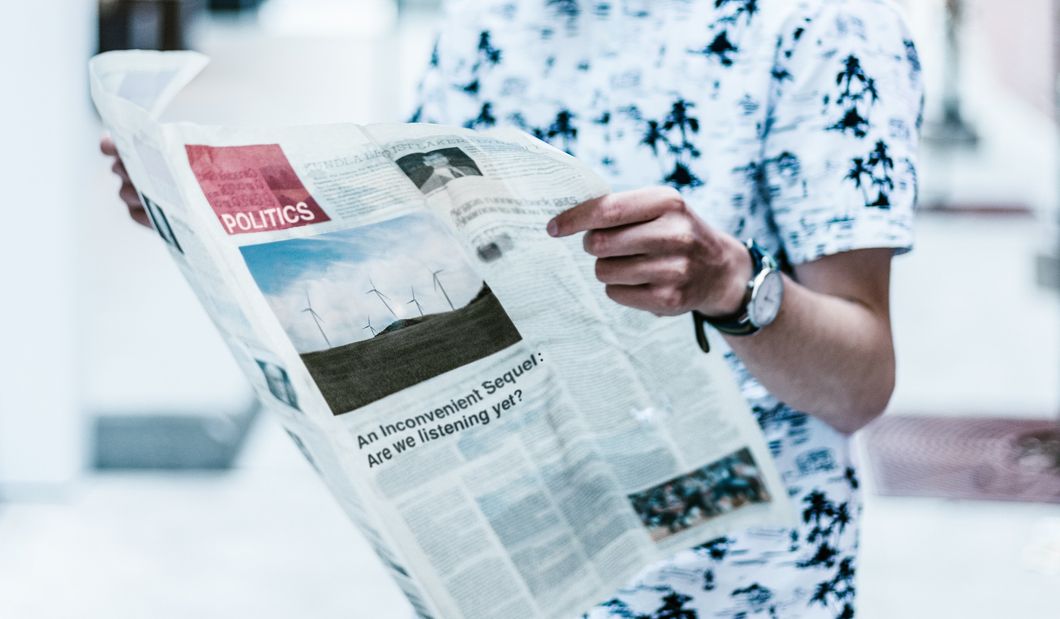Think about what you learn in the classroom—how to read and write critically, how to debate, how to think about all of this. Teachers and professors want to teach you how to have an opinion without giving theirs to you!
But they can't teach you everything. Part of learning is taking the lessons outside the classroom; one important place to enrich your education is through your information and media consumption.
I realized recently that some of my friends weren't informed—either in general or on certain topics—and that they didn't really know where to start. But it can be easy if you know the right place to look and why you should be looking.
Why should you have an "education outside the classroom"?
The first reason you should read or listen to the news is that you should be informed. All of the policies that are discussed now will affect your life—at the very least when you leave school for "the real world." Therefore, if you start media consumption habits now, you won't have to play catch up later.
Second, you can have conversations surrounding the topics. I personally found that having these conversations made me more motivated to be informed and consider other points of view. There are sides that you didn't originally consider, and you can learn these through media consumption and conversations.
One of the most important lessons I learned when fostering my media habits was how to talk about hard topics respectfully. You don't have to shout your opinion from the rooftop, and more people will listen if you sound properly informed. In fact, I find it more respectable when someone can admit they aren't well informed, or they can't see a different side and are open to explanations instead of arguing for something they don't understand.
Finally, and probably the most important reason to foster media habits is the opportunity to be active. My high school teacher put this perfectly: "we can't have solutions without understanding the problems." Soon, it will be our generation making the policies. And right now, many of us can vote. You can use your informed opinion to exercise one of your most important rights!
How do you start?
We are so fortunate to live in a world where media habits are easy to form! You don't have to pick up a thick newspaper full of long articles and big headlines. I would encourage that, but it is intimidating! Where do you start? What if it doesn't interest you?
Really the best way to begin is with briefings. The New York Times, CNN, and the Wall Street Journal all have morning briefings that are a great way to read a couple sentences about topics. By reading several briefings, you can see a couple of different sides. These specific briefings also offer links to a longer article with more information on the topic. This is key to creating good media habits—you can find the articles you actually want to read easily through a briefing. Find what you're interested in and follow it.
My favorite briefing is theSkimm. This is a daily email sent before you wake up to cover the day's topics in a way you can understand. Again, it contains links to different sources with full articles if you want to read more. This makes it so easy to read on your commute, and it sounds like your best friend filling you in on a topic. They really put an effort into finding different sources and covering a range of topics. You can subscribe here.
Another great idea is to have someone check up on you. Have those conversations about the news, because it will help you think critically about what you are reading. In the classroom, your teacher checks in you did your reading. This can be a more fun opportunity to talk about a topic you are passionate about. It can be anyone from a person also just getting started to someone who is very passionate about politics.
When it comes down to it, starting with 10 minutes in the morning dedicated to the news will help you in the long run. It can be on your commute, in the gym, or during breakfast. This effort will go a long way into fostering your media habits.



















